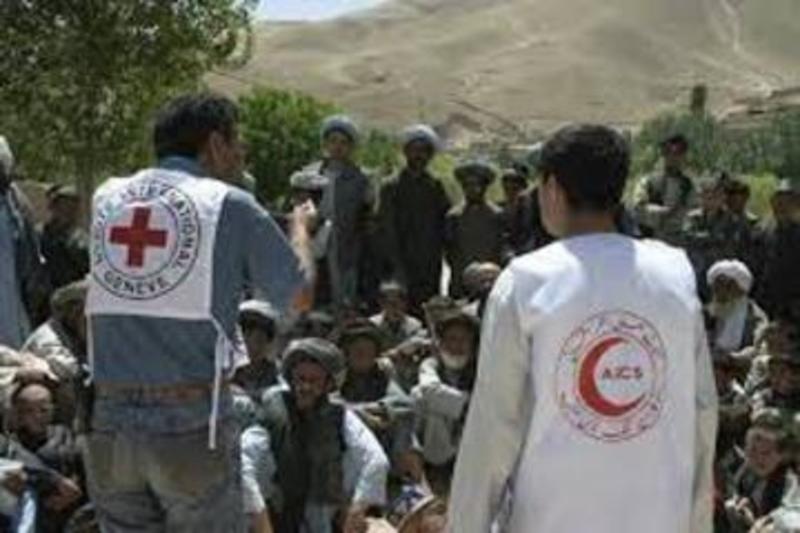INGOs and the Long Humanitarian Century: Legacy, Legitimacy, and Leading into the Future
The policy-facing research project ‘INGOs and the Long Humanitarian Century’ is based at Nuffield College and is led by Professor Andrew Thompson and Professor Sir Mike Aaronson. It is supported by AHRC Care for the Future theme – a thematic programming grant held by Professor Thompson.
The rise of powerful international NGOs (INGOs) is widely recognized as a key development in the international humanitarian landscape over the last century, especially in the last thirty years. The part played by INGOs in the delivery of emergency relief and longer-term development assistance is well documented. But there is a widespread feeling within the leadership of the INGO community that this is a time for critical reflection about the nature of INGOs themselves and their relations with their donors and beneficiaries as well as with governments in their countries of operation. There is much talk of INGOs being in crisis: a crisis of legitimacy, of core identity, and of relevance.
The approach of this project is captured in the framework of 'Legacy, Legitimacy, and Leadership'. There is an empirical starting point: who exactly are these organisations, how have they changed over the years, and where are they now? Then there is a normative component that assesses their claims to legitimacy against other models (there will be an empirical dimension here too, to help us understand those other models better). And finally, there is a forward-looking piece, more prescriptive, which is about the future leadership that is required if INGOs are to continue to be relevant and effective.
In essence, this is about understanding INGOs’ fundamental purpose, the values that inspire them, how well their culture reflects those values and the degree of trust that they manage to secure both from those on whose support they depend and from those in whose name they exist, given the changing world in which they now have to operate.
INGOs Leadership Survey, in partnership with Save the Children UK
In Spring 2021 we launched our survey of CEOS and Senior Executives of the world’s leading INGOs. Working with colleagues at Save the Children UK, we interviewed over 50 CEOs and Executive Directors to capture their views on the aid and development sector and their vision for the sector by the year 2030. The results of the survey are due to be released in September 2021.
Programme Approach
Our overarching aim is to identify the features of the successful INGO of 2030. This will be achieved by means of a series of workshops over an 18 to 24 month period, informed by a number of commissioned research papers. In addition to academic research outputs, we will produce a commissioned Nuffield Report, aimed more at a policy and practitioner audience, which will be forward and outward-looking and will attempt to frame the leadership challenge facing INGOs of the future.
We shall use the three prisms of 'Legacy, Legitimacy, and Leadership' to explore a number of existing questions relating to INGOs that will help us see this future more clearly:
- their values, principles, and motivations;
- their relationship with their beneficiaries;
- how they have been and continue to be affected by geopolitics;
- their business models, the political economy in which they operate, in particular how donor politics impacts on their relations with their state funders.
Our three prisms will allow us to make sense of these questions:
- Legacy: who are these organisations, where have they come from in terms of inspiration and purpose, how has this changed over the years, and where are they now? Understanding their past is essential if we are to make sense of their present and anticipate their future. How well have they served their purpose and do they now face an existential crisis?
- Legitimacy: how valid are the principles by which INGOs justify their existence? How much are they truly sensitive to the needs of their beneficiaries, and how much do they allow their form and their activity to be shaped by them? Are the values that inspire them truly universal or are they rather the product of a particular, predominantly western, liberal democratic hegemony? How effective are they; how do they compare with other, more recent forms of social organisation that perhaps better reflect the digital age?
- Leadership: what is required if these INGOs are going to transform themselves into successful – i.e. relevant and effective – organisations of the future; what is the leadership challenge? Can they continue to do all the things they have done in the past, or do they need to find new operating models and better ways of working with others?
International Advisory Board
The Project is overseen by an International Advisory Board.
Co-Chair: Baroness Valerie Amos, Former Secretary-of-State, Department for International Development, UK
Co-Chair: Yves Daccord, Former Secretary-General, International Committee of the Red Cross
Prof. Sir Mike Aaronson, Honorary Fellow, Nuffield College
Dr Catherine Bragg, Formerly Deputy Emergency Relief Co-ordinator, United Nations
Dotti Irving, CEO, Four Communications
Dr James Kisia, Country Director, Catholic Medical Mission Board Kenya
Frances Longley, CEO ActionAid UK
Ayan Mahamoud, Formerly Resident Representative of Somaliland to the UK Commonwealth
Gareth Owen OBE, Humanitarian Director, Save the Children UK
Saleh Saeed OBE, CEO, Disasters Emergency Committee
Prof. Andrew Thompson CBE, Professor of Global and Imperial History, University of Oxford
People




